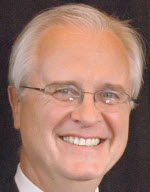Guest column: Elites are trying to wrest control of courts from the voters
By Dan Pero/American Justice Partnership
The recent recommendations of Michigan’s Judicial Selection Task Force have been widely hailed by legal elites, prominent newspaper editorial boards and others. Yet the proposed changes would do little to reduce the influence of money or politics in the judicial selection process, while seriously weakening the power of ordinary voters when it comes to deciding who will sit on the bench.
The best starting point for evaluating the Task Force’s proposals is its funding and composition. The dollars came from the Michigan State Bar Foundation. Of the 24 full Task Force members, 18 are attorneys, including three former presidents of the State Bar and two former heads of the Michigan Trial Lawyers Association. Of the non-attorney members, one finds a former Michigan Democratic Party chair, a former Democratic candidate for governor, and a former president of the MEA.
In short, this was not an independent, nonpartisan committee representing a broad cross-section of Michigan. This was a group comprised primarily of elite lawyers and Democratic Party activists, many of whom have long sought to shift the direction of the court in a more liberal direction than the one preferred by voters.
One major problem with democratic elections, according to the Task Force, is that ordinary voters lack the “knowledge” to undertake the “basic task of determining what qualities are necessary to a successful Supreme Court justice.” “Uninformed” voters lack “adequate time or training to study judicial candidates’ records,” which, the Task Force believes, leaves them susceptible to “noxious, distracting and misleading” ads and turns democratic elections into a “farce.”
Even if you grant the Task Force’s premise that voters are too uneducated to select Supreme Court justices, which I don’t, it’s difficult to see how its many proposed reforms will address the problem.
Shifting judicial nominations from party conventions to “open, nonpartisan primaries” for example, will do little to curtail campaign spending and tough television ads. In fact, it might actually increase both.
Creating a do-good Campaign Oversight Committee to “monitor” campaign ads and “help limit debate to those issues” the committee deems should be relevant to voters is also likely to have little impact on the tone and tenor of judicial campaigns.
Which brings us to the task force’s real plan and true purpose -- namely to serve as a stalking horse for the abolishment of democratic judicial elections and the adoption of a new, feel-good judicial selection system known by its supporters as “merit” selection.
Under this scheme, which requires amending Michigan’s Constitution, a new commission would solicit applications from prospective jurists and review their qualifications, with no input from voters. Afterwards, the commission would produce a list of approved nominees from which the governor must choose.
“Merit” selection originated in Missouri as a way to break the notorious Pendergast political machine’s grip over the selection of judges. Whatever its intentions, this system has turned judicial selection into a virtual subsidiary of the Missouri trial bar.
The problem has grown so bad that a few months back, the Missouri Senate voted to rein in the power of legal special interest groups and make the system more accountable. Other states that have experimented with this system, including Arizona and Tennessee, are considering legislative plans to scrap it altogether.
Democratic judicial elections are certainly not perfect. They can be messy, expensive and negative. But, unlike “merit” selection, they have the virtue of putting the people in charge, rather than an unelected, unaccountable commission. And isn’t that what democracy is all about?
See what new members are saying about why they donated to Bridge Michigan:
- “In order for this information to be accurate and unbiased it must be underwritten by its readers, not by special interests.” - Larry S.
- “Not many other media sources report on the topics Bridge does.” - Susan B.
- “Your journalism is outstanding and rare these days.” - Mark S.
If you want to ensure the future of nonpartisan, nonprofit Michigan journalism, please become a member today. You, too, will be asked why you donated and maybe we'll feature your quote next time!


